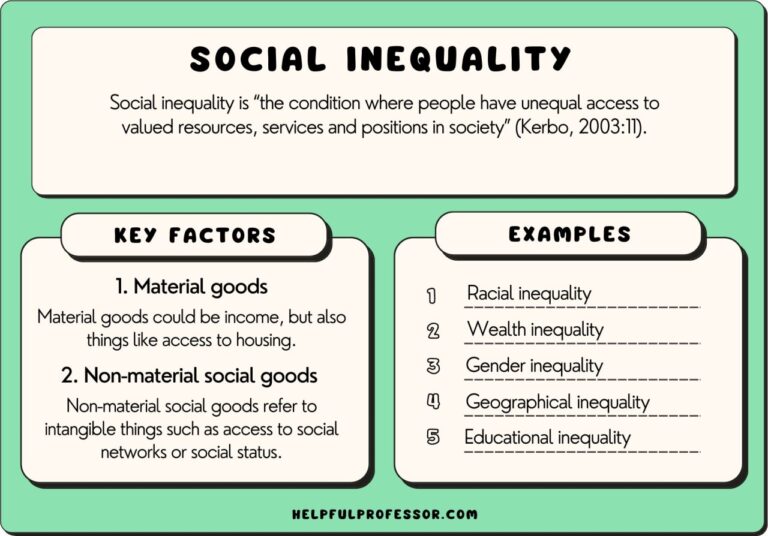
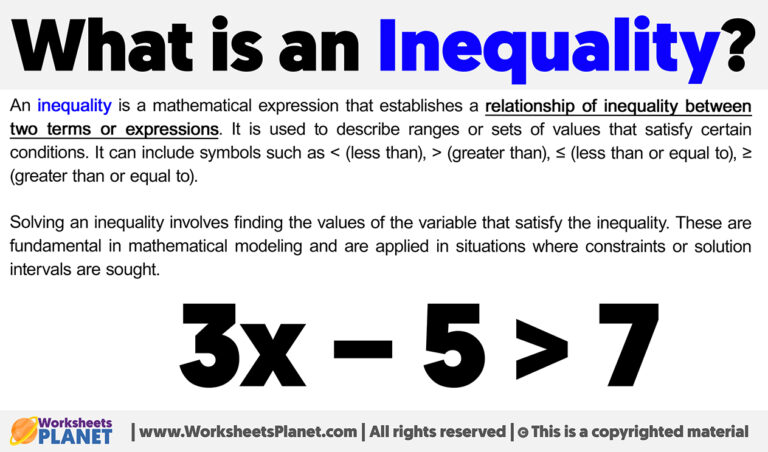
Page Description
Learn about the causes and effects of inequality,
its various forms,
and strategies to promote equality
and social justice.
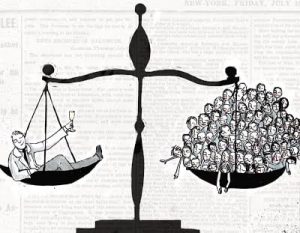
The unfair situation in society when some people have more opportunities, money, etc. than other people:
The law has done little to prevent racial discrimination and inequality.
Sexual inequality
There remain major inequalities of opportunity in the workplace.
Opposite equality
Cambridge Dictionary
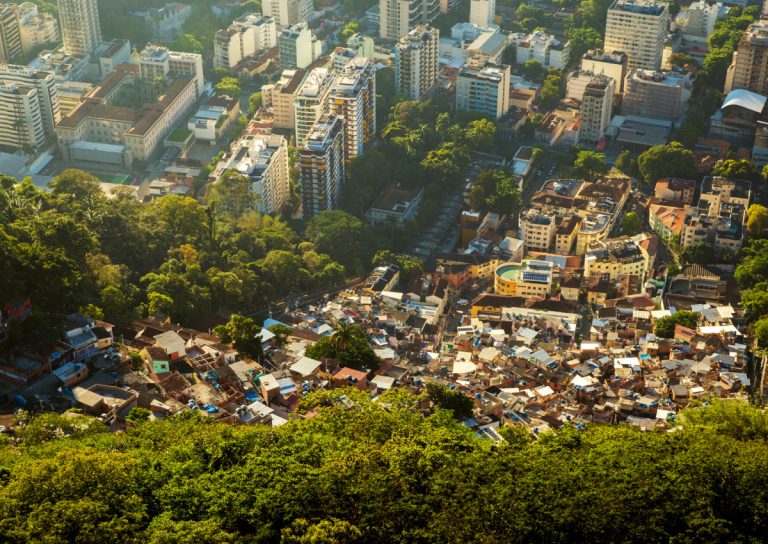
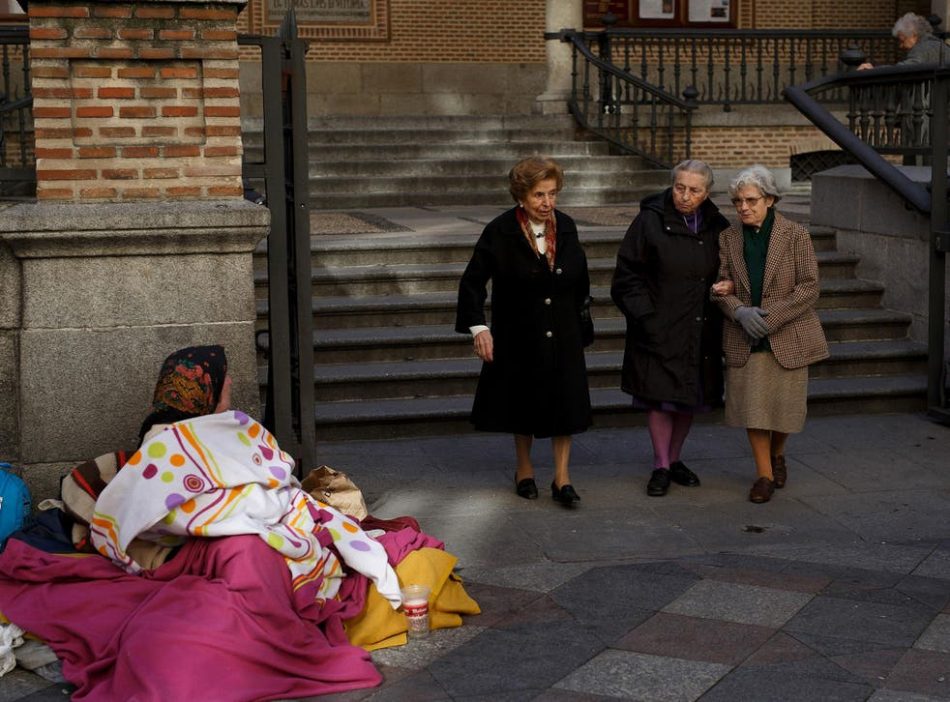
Inequality: A World Divided
Inequality manifests in countless ways, shaping lives and futures based on circumstances beyond individual control. From systemic racial wealth gaps to the struggles of children on the streets of Ethiopia, this collection of videos examines the stark contrasts in opportunities, resources, and rights across the globe. Through the lens of powerful storytelling by Edouard Louis and others, these stories uncover the human cost of poverty, prejudice, and uneven progress, challenging us to confront the systems that perpetuate disparity and to envision a more just and equitable world.
Ongelijkheid: Een Verdeelde Wereld
Ongelijkheid uit zich op talloze manieren en bepaalt levens en toekomsten op basis van omstandigheden buiten iemands controle. Van systemische raciale welvaartsverschillen tot de worstelingen van straatkinderen in Ethiopië, deze verzameling video’s belicht de schrijnende contrasten in kansen, middelen en rechten wereldwijd. Door middel van krachtige verhalen van onder anderen Édouard Louis onthullen deze video’s de menselijke prijs van armoede, vooroordelen en ongelijkmatige vooruitgang. Ze dagen ons uit om de systemen die ongelijkheid in stand houden onder ogen te zien en een rechtvaardigere en meer gelijkwaardige wereld te verbeelden.
Is UN’s goal of zero world hunger by 2030 moving out of reach? | DW News
12 jul. 2021
When using the word “inequality,” there are several key points to consider:
Disparity: Inequality refers to a condition or state of being unequal, where there is a lack of fairness, justice, or balance. It often highlights differences or disparities in various aspects of life, such as wealth, income, education, opportunities, or treatment.
Differential Treatment: Inequality may arise when individuals or groups are treated differently based on characteristics such as race, gender, age, religion, sexual orientation, disability, or socioeconomic status. It can result in advantages or disadvantages for certain individuals or groups, leading to unequal outcomes.
Social Impacts: Inequality can have significant social impacts, including reduced social cohesion, increased social stratification, and limited social mobility. It can contribute to divisions, tensions, and conflicts within societies, leading to economic, political, and social consequences.
Structural Factors: Inequality can be influenced by various structural factors, such as economic systems, policies, laws, social norms, and cultural beliefs. These factors can create or perpetuate disparities, leading to systemic or structural inequality that is embedded in institutions and systems.
Human Rights: Inequality is often seen as a violation of human rights, including the principles of equality, non-discrimination, and social justice. It can be addressed through human rights frameworks and principles, advocating for equal opportunities, fairness, and dignity for all individuals, regardless of their backgrounds or characteristics.
Intersectionality: Inequality can intersect with multiple dimensions of identity, such as race, gender, class, and more. Intersectionality recognizes that individuals may face different forms of discrimination or disadvantage based on the intersection of their identities, and that addressing inequality requires an understanding of these complex intersections.
Addressing Inequality: Recognizing and addressing inequality often involves implementing policies, interventions, and initiatives that promote equity, fairness, and inclusivity. It may require systemic changes, advocacy, and collective efforts to reduce disparities, promote equal opportunities, and create a more just and inclusive society.
Measurement and Data: Inequality can be measured through various indicators, such as income or wealth gaps, educational attainment, employment opportunities, health outcomes, and more. Data and evidence-based approaches are often used to understand the extent and nature of inequality and to inform policy and decision-making processes.
Overall, “inequality” encompasses a complex and multifaceted concept that involves disparities, differential treatment, social impacts, structural factors, human rights, intersectionality, and efforts to address and reduce disparities to create a more equitable and inclusive society.
Edouard Louis
Eddy Bellegueule – Marvin : une adaptation sous tension ? – Reportage cinéma
Edouard Louis: «C’est le system, qui est responsable!» | Sternstunde Philosophie | SRF Kultur
26 feb 2019
Édouard Louis est une des étoiles montantes de la littérature française. L’écrivain de 26 ans, homosexuel, est issu d’un milieu conservateur pauvre et soutient le mouvement des “gilets jaunes”. Avec Yves Bossart Edouard Louis discute de l’inégalité sociale, de la virilité et de la violence invisible.
THE MANY LIVES OF EDOUARD LOUIS – OFFICIAL INTERNATIONAL TRAILER
19 jun 2023
A film by François Caillat Documentary / 72 min / France / 2022 Language: French Subtitles: English With: Edouard Louis Synopsis:
The metamorphosis of a young boy from a sub-proletarian background in Picardie into a star of French cultural life. Édouard Louis, who in a few years has become the spokesman writer of a generation, encourages each of us to make permanent transformation a new way of life.
Edouard LOUIS, les années Amiens (Documentaire)
“Quand je parlais, mon père baissait les yeux parce qu’il avait honte de moi”. “Et ce que je voulais, c’est que mon père cesse de baisser les yeux”. À l’heure des débats sur le genre, l’identité, l’appartenance et les frontières, l’écrivain Édouard Louis revient sur ses années lycée à Amiens, sur sa quête d’identité et sa métamorphose pour une nouvelle vie.
Studio B, Unscripted: With Ken Loach and Edouard Louis
6 dec 2019
On this episode of Studio B, famed social-realist film director Ken Loach is in conversation with young French best-selling writer, Edouard Louis.
One of the most successful directors in the history of Cannes Film Festival, Loach has dozens of credits to his name for over 50 years and a career focusing on social issues such as poverty, class, homelessness, and labour rights.
Loach is meeting someone with whom he shares a lot in common and yet their differences are stark.
Louis has risen to fame over the last few years thanks to the success of his first novel, the autobiographical The End of Eddy. Born into a small town working-class French family, Louis’ experienced first-hand many of the issues that Loach addresses in his films.
This meeting of minds and cultures highlights how many of the most important things transcend borders and generations – even if there’s not always agreement on how to achieve them.
The views expressed in this programme are the guests’ own and do not necessarily reflect Al Jazeera’s editorial stance.
Studio B, Unscripted is a free-flow conversation between two guests and a small audience, with no mediation, no MC, no TV presenter – focusing on what brings us all together and how we can tackle and discuss some of the big issues of our time.
How politics becomes a matter of life and death for the working class | Édouard Louis | Buitenhof
Édouard Louis and Kerry Hudson: Who Killed My Father?
27 feb 2019
Édouard Louis, one of France’s most acclaimed young writers, shot to international fame with his first novel, the semi-autobiographical ‘End of Eddy’. His third novel, ‘Who Killed My Father’, revisits many of the same locations and subjects — poverty, homophobia and social exclusion — in non-fictional essay form, and is a powerful polemic exploring the bonds, often persistent even when apparently sundered, between parent and child. He discusses it here with novelist and journalist Kerry Hudson.
Find our upcoming digital and in-person events here: https://lrb.me/upcomingevents
Read about Édouard Louis in the London Review of Books: https://lrb.me/aboutlouisyt
Portraying Gay Male Life Today-2017 PEN World Voices Festival
Artists discuss their take on the post-marriage equality yet homophobic state-of-the-world with Andrew Solomon, Garth Greenwell, Ali Asgar, and Edouard Louis, moderated by Tobin Low.
The Political Body Part 1 – Edouard Louis and Sandra Kolstad
21 dec 2017
The political body was performed at The House of Literature on the 6th of October 2017.
Text was written and performed by Édouard Louis.
Music composed by Sandra Kolstad, performed by Sandra Kolstad and Jonas Barsten.
Visual design Birk Nygaard.
Video Oslo Sessions
©Litteraturhuset /The House of Literature, 2017
www.litteraturhuset.no
The Political Body Part 2 – Athena Farrokhzad and Sandra Kolstad
The political body was performed at The House of Literature on the 6th of October 2017.
Text was written and performed by Athena Farrokhzad.
Music composed by Sandra Kolstad, performed by Sandra Kolstad and Jonas Barsten.
Visual design Birk Nygaard.
Video Oslo Sessions
©Litteraturhuset /The House of Literature, 2017
www.litteraturhuset.no
Literature is a Weapon | Ash Sarkar meets Edouard Louis
In première gegaan op 27 feb 2019 Downstream – NEW episodes every Sunday 3pm UK
This interview has French subtitles available!
Cette interview a des sous-titres français disponibles!
At the LRB Bookshop Ash met French literary sensation Edouard Louis to discuss his latest book “Who Killed My Father”, the Gilets Jaunes, love, suffering and more.
Edited and translated by Clémentine March
Terzake interviewt Édouard Louis
12 apr 2022
Édouard Louis is nog geen 30, maar nu al één van de sterren van de Franse literatuur. In zijn autobiografische romans, waarvan ‘Veranderen: methode’ de laatste is, beschrijft Louis hoe hij zichzelf losrukte uit het Frans arbeidersmilieu en de uitsluiting en innerlijke strijd die daarbij komen kijken. Zijn werken zijn uitgesproken politiek statements. Over klasse, afkomst, homofobie en ongelijkheid. Terzake kon hem interviewen.
Clique x Edouard Louis : Histoire de la violence – CANAL+
Édouard Louis exprime son “Histoire de la souffrance” Entrée libre
29 jan 2016
Le jeune écrivain Edouard Louis revient avec un nouveau roman “Histoire de la violence” où il exprime toute la violence du monde dans la littérature, en s’appuyant sur sa propre histoire. Pour Entrée Libre il nous décrit son oeuvre.
Du lundi au vendredi, Claire Chazal explore les multiples formes de la culture. Au menu, l’actualité culturelle des dernières 24 heures, des reportages sur des sujets éclectiques, ainsi que des rencontres avec des personnalités du monde des arts plastiques, du spectacle vivant, du cinéma et de la musique. Une fois par mois, un invité prend les commandes de l’émission et propose ses choix culturels.
Edouard Louis raconte l’histoire d’une nuit de plaisir et de terreur
Le jeune romancier publie son très attendu deuxième roman “Histoire de la violence” (Seuil)
Édouard Louis talks to Tash Aw about ‘The End of Eddy’
16 feb 2017
Édouard Louis talked to Tash Aw at the London Review Bookshop on 7 February 2017.
Find our upcoming digital and in-person events here: https://lrb.me/upcomingevents
Read Tash Aw’s review of The End of Eddy in the London Review of Books: https://lrb.me/aboutlouisyt
Édouard Louis was born into poverty in northern France, as Eddy Belleguele, in 1992. His autobiographical novel ‘En finir avec Eddy Bellegueule’, newly translated into English as The End of Eddy (Harvill Secker), draws an unsparing portrait of the violence, alcoholism, racism and homophobia of the milieu into which he was born, and quickly became a sensational bestseller both in France and throughout Europe.
ABOUT THE LONDON REVIEW BOOKSHOP
Located in the heart of Bloomsbury, just a Rosetta Stone’s throw from the British Museum, the London Review Bookshop has established itself as an essential part of the capital’s cultural life. Opened in 2003 by the London Review of Books, it’s a place for people who love books to meet, talk, drink excellent tea and coffee, consume delicious cake, and of course, browse.
Our selection of more than 20,000 titles ranges from the classics of world literature to the cutting edge of contemporary fiction and poetry, not forgetting a copious display of history, politics, philosophy, cookery, essays and children’s books. And our lovely shop, designed by Amanda Culpin of utility provides the perfect setting in which to explore them all.
THE CAKE SHOP
Surrounded by books and fragrant with tea, the London Review Cake Shop is the modern answer to London’s long-lost literary coffee-houses. Accessed through the Bookshop via a corridor in the history section, the Cake Shop offers a small but vibrant menu, a wide selection of fine teas and a superior espresso. Above all, it provides a haven for reading and reflection.
The London Review Bookshop and Cake Shop are open Monday- Saturday, 10 a.m. – 6.30 p.m. The Bookshop is also open on Sunday, 12 p.m. – 6 p.m.
14 Bury Place, London WC1A 2JL. Tel. 020 7269 9045.
Edouard Louis : “Même les livres qu’on ne lit pas changent nos vies”
18 mei 2018
Après “En finir avec Eddy Bellegueule” et “Une histoire de la violence”, Edouard Louis vient de publier “Qui a tué mon père” au Seuil, monologue théâtral, sorte de réquisitoire contre tous les politiques qui n’en finissent pas d’assassiner son père. Il était l’invité de la Midinale.
VERBATIM
Sur la colère comme source de l’écriture
« Il n’y a pas de vérité sans colère. »
« La colère est un instrument de connaissance du monde. »
« Au moment où je lutte, c’est très important de parler des choses négatives, de ce qui ne va pas. »
« Si vous parlez de choses belles, en littérature ou en politique, vous flattez des gens qui ont déjà accès à des privilèges. »
Sur la violence comme source du politique
« Tous les grands mouvements politiques du XXè siècle – le marxisme, le mouvement LGBT, le mouvement antiraciste, le mouvement féministe –, ce sont des mouvements qui partaient d’une parole sur la violence. »
« C’est en parlant de la violence que l’on peut créer un peu plus de beauté, un peu plus de liberté. »
Sur l’importance politique de la littérature
« La vie d’une femme serait pas la même chose sans les livres de Simone de Beauvoir ou de Violette Leduc. »
« Même les livres que l’on ne lit pas changent nos vies. »
Sur l’héritage de Pierre Bourdieu
« La puissance de Pierre Bourdieu et des grandes intellectuelles et grands intellectuels en général, c’est de réussir à produire des collectifs. »
« Bourdieu, ça veut dire ne pas répéter ce qu’a fait Bourdieu. »
Sur l’état actuel de la gauche politique
« Presque tous les mouvements qui ont été mis en place à gauche ont perdu. »
« Il y a une situation politique presque désespérée. »
« On essaie d’inventer de nouvelles manières de lutter, de rendre une victoire possible. »
Sur son rapport à la politique
« J’ai été militant au Nouveau parti anticapitaliste pendant plusieurs années. »
« Je réussis mieux à m’exprimer à travers mes livres. »
« Il y a un coût de la politique qui est très difficile à assumer. »
Sur le rapport des dominé-es avec la politique
« C’est avant tout la politique qui est engagée contre nous : c’est Macron qui est engagé contre nous, c’est Hollande, c’est El Khomri qui sont engagés contre nous. »
« Quand vous appartenez aux classes populaires, la politique cherche à vous détruire. »
« Derrière tout mouvement politique, il y a une espèce de rêve de fin du mouvement politique. »
Sur la démocratie
« Si quelqu’un dit ‘on est en démocratie’, c’est qu’il y a déjà un problème. »
« La démocratie, il faudrait qu’elle soit toujours dans le futur, qu’on soit toujours dans une forme de recherche de la forme démocratique. »
« La démocratie telle qu’elle existe aujourd’hui réduit au silence beaucoup d’individus. »
Sur l’écologie
« L’écologie, c’est l’urgence absolue. »
« On se masque encore la réalité de l’urgence écologique. »
« Dans l’écologie, il y a toujours eu un mouvement de connexion des luttes très important. »
Édouard Louis and Tash Aw: A Woman’s Battles and Transformations
8 sep 2022
Édouard Louis’s tender memoir of his mother is an exquisite portrait of womanhood, motherhood, the trials of both and the transcendent, fragile joy of eventual liberation. Louis, one of the leading French writers of his generation, discusses ‘A Woman’s Battles and Transformations’ with its English translator the novelist Tash Aw, winner of the Whitbread First Novel Award for ‘The Harmony Silk Factory’ and author most recently of ‘We, The Survivors’.
ABOUT THE LONDON REVIEW BOOKSHOP
Located in the heart of Bloomsbury, just a Rosetta Stone’s throw from the British Museum, the London Review Bookshop has established itself as an essential part of the capital’s cultural life. Opened in 2003 by the London Review of Books, it’s a place for people who love books to meet, talk, drink excellent tea and coffee, consume delicious cake, and of course, browse.
Our selection of more than 20,000 titles ranges from the classics of world literature to the cutting edge of contemporary fiction and poetry, not forgetting a copious display of history, politics, philosophy, cookery, essays and children’s books. And our lovely shop, designed by Amanda Culpin of utility provides the perfect setting in which to explore them all.
THE CAKE SHOP
Surrounded by books and fragrant with tea, the London Review Cake Shop is the modern answer to London’s long-lost literary coffee-houses. Accessed through the Bookshop via a corridor in the history section, the Cake Shop offers a small but vibrant menu, a wide selection of fine teas and a superior espresso. Above all, it provides a haven for reading and reflection.
The London Review Bookshop and Cake Shop are open Monday- Saturday, 10 a.m. – 6.30 p.m. The Bookshop is also open on Sunday, 12 p.m. – 6 p.m.
14 Bury Place, London WC1A 2JL. Tel. 020 7269 9045
Edouard Louis – On est en direct 17 avril 2021 #OEED
Edouard Louis pour son livre Combats et métamorphose d’une femme ON EST EN DIRECT, c’est LE nouveau rendez-vous de deuxième partie de soirée des samedis de France 2 à 23h30 ! Et en direct, tout peut arriver ! Retrouvez Laurent Ruquier et ses invités qui font l’actualité.
Édouard Louis: Changing: On Self-Reinvention and Self-Fashioning (Mosse-Lecture vom 27.06.2019)
2 jul 2019
Édouard Louis: »Changing: On Self-Reinvention and Self-Fashioning«
Mit Lothar Müller.
Von Pierre Bourdieu bis Simone de Beauvoir oder Patti Smith, von Jean Paul Sartre, Frantz Fanon bis zu Tash Aw oder Didier Eribon, von den feministischen Bewegungen zu denen der LGBT zur Geschlechtsidentität: Künstler, Aktivisten und Schriftsteller haben sich mit der Frage auseinandergesetzt, ob es möglich ist, sich selbst neu zu erfinden, individuell und kollektiv. Ist da etwas in unserem Leben, das wir „Freiheit“ nennen könnten entgegen der ‚Normalität‘ sozialer Strukturen, trotz Rassismus, maskuliner Dominanz und dem Hass auf Homosexuelle? Wie können wir etwas schaffen: Inmitten der sozialen Determinierungen als Bedingungen unseres Leben? Können wir uns freimachen von sozialen Determinismen, wenn wir sie analysieren? Gehören unsere Körper wirklich uns? Wie können wir „Ich“ sagen?
Édouard Louis lebt als freier Schriftsteller in Paris, an der EHESS schrieb er seine Arbeit Pierre Bourdieu – L’insoumission en héritage (2013); Gastdozenturen am Dartmouth College und am Peter-Szondi-Institut der Freien Universität Berlin; Veröffentlichungen auf Deutsch: Die beiden Romane “Das Ende von Eddy” (2015) und “Im Herzen der Gewalt” (2017), in der Inszenierung von Thomas Ostermeier an der Berliner Schaubühne (2018); 2019 erschien “Wer hat meinen Vater umgebracht” (2019).
Edouard Louis – Qui a tué mon père ?
Édouard Louis: Changing: On Self-Reinvention and Self-Fashioning (Mosse-Lecture vom 27.06.2019)
2 jul 2019
Édouard Louis: »Changing: On Self-Reinvention and Self-Fashioning«
Mit Lothar Müller.
Von Pierre Bourdieu bis Simone de Beauvoir oder Patti Smith, von Jean Paul Sartre, Frantz Fanon bis zu Tash Aw oder Didier Eribon, von den feministischen Bewegungen zu denen der LGBT zur Geschlechtsidentität: Künstler, Aktivisten und Schriftsteller haben sich mit der Frage auseinandergesetzt, ob es möglich ist, sich selbst neu zu erfinden, individuell und kollektiv. Ist da etwas in unserem Leben, das wir „Freiheit“ nennen könnten entgegen der ‚Normalität‘ sozialer Strukturen, trotz Rassismus, maskuliner Dominanz und dem Hass auf Homosexuelle? Wie können wir etwas schaffen: Inmitten der sozialen Determinierungen als Bedingungen unseres Leben? Können wir uns freimachen von sozialen Determinismen, wenn wir sie analysieren? Gehören unsere Körper wirklich uns? Wie können wir „Ich“ sagen?
Édouard Louis lebt als freier Schriftsteller in Paris, an der EHESS schrieb er seine Arbeit Pierre Bourdieu – L’insoumission en héritage (2013); Gastdozenturen am Dartmouth College und am Peter-Szondi-Institut der Freien Universität Berlin; Veröffentlichungen auf Deutsch: Die beiden Romane “Das Ende von Eddy” (2015) und “Im Herzen der Gewalt” (2017), in der Inszenierung von Thomas Ostermeier an der Berliner Schaubühne (2018); 2019 erschien “Wer hat meinen Vater umgebracht” (2019).
Édouard Louis – Monique s’évade
Maison de la Poésie – Scène littéraire
27 mei 2024
Entretien mené par Mary Kairidi
« Une nuit, j’ai reçu un appel de ma mère. Elle me disait au téléphone que l’homme avec qui elle vivait était ivre et qu’il l’insultait. Cela faisait plusieurs années que la même scène se reproduisait : cet homme buvait et une fois sous l’influence de l’alcool il l’attaquait avec des mots d’une violence extrême. Elle qui avait quitté mon père quelques années plus tôt pour échapper à l’enfermement domestique se retrouvait à nouveau piégée. Elle me l’avait caché pour ne pas « m’inquiéter » mais cette nuit-là était celle de trop.
Je lui ai conseillé de partir, sans attendre.
Mais comment vivre, et où, sans argent, sans diplômes, sans permis de conduire, parce qu’on a passé sa vie à élever des enfants et à subir la brutalité masculine ?
Ce livre est le récit d’une renaissance. »
Édouard Louis
À lire – Édouard Louis, Monique s’évade, Seuil, 2024
Édouard Louis: Changing: On Self-Reinvention and Self-Fashioning (Mosse-Lecture vom 27.06.2019)
2 jul 2019
Édouard Louis: »Changing: On Self-Reinvention and Self-Fashioning«
Mit Lothar Müller.
Von Pierre Bourdieu bis Simone de Beauvoir oder Patti Smith, von Jean Paul Sartre, Frantz Fanon bis zu Tash Aw oder Didier Eribon, von den feministischen Bewegungen zu denen der LGBT zur Geschlechtsidentität: Künstler, Aktivisten und Schriftsteller haben sich mit der Frage auseinandergesetzt, ob es möglich ist, sich selbst neu zu erfinden, individuell und kollektiv. Ist da etwas in unserem Leben, das wir „Freiheit“ nennen könnten entgegen der ‚Normalität‘ sozialer Strukturen, trotz Rassismus, maskuliner Dominanz und dem Hass auf Homosexuelle? Wie können wir etwas schaffen: Inmitten der sozialen Determinierungen als Bedingungen unseres Leben? Können wir uns freimachen von sozialen Determinismen, wenn wir sie analysieren? Gehören unsere Körper wirklich uns? Wie können wir „Ich“ sagen?
Édouard Louis lebt als freier Schriftsteller in Paris, an der EHESS schrieb er seine Arbeit Pierre Bourdieu – L’insoumission en héritage (2013); Gastdozenturen am Dartmouth College und am Peter-Szondi-Institut der Freien Universität Berlin; Veröffentlichungen auf Deutsch: Die beiden Romane “Das Ende von Eddy” (2015) und “Im Herzen der Gewalt” (2017), in der Inszenierung von Thomas Ostermeier an der Berliner Schaubühne (2018); 2019 erschien “Wer hat meinen Vater umgebracht” (2019).
1 Explained | Racial Wealth Gap | FULL EPISODE | Netflix
17 apr. 2020
In partnership with Vox Media Studios and Vox, this enlightening explainer series will take viewers deep inside a wide range of culturally relevant topics, questions, and ideas. Each episode will explore current events and social trends pulled from the zeitgeist, touching topics across politics, science, history and pop culture — featuring interviews with some of the most authoritative experts in their respective fields.
In this episode: Cory Booker and others discuss how slavery, housing discrimination and centuries of inequality have compounded to create a racial wealth gap.
US Rating: TV-MA. This show is designed for for mature audiences only.
For more information and educational resources, please visit: https://media.netflix.com/en/company-…
About Netflix: Netflix is the world’s leading streaming entertainment service with over 167 million paid memberships in over 190 countries enjoying TV series, documentaries and feature films across a wide variety of genres and languages. Members can watch as much as they want, anytime, anywhere, on any internet-connected screen. Members can play, pause and resume watching, all without commercials or commitments.
Explained | Racial Wealth Gap | FULL EPISODE | Netflix https://youtube.com/Netflix
2 The Racial Wealth Gap? It All Comes Down to Black Banks | Amanpour and Company
Data show that the median white family has 10 times more wealth than the average Black family, a fact grimly familiar to law professor Mehrsa Baradaran. In her award-winning book, “The Color of Money: Black Banks and the Racial Wealth Gap,” she examines how Black communities have been systemically shut out of the banking system – a big brick in the wall of structural racism. Michel Martin speaks with Baradaran about these issues even before the current crises sweeping America. This conversation shows just how prescient her warnings are.
Originally aired on July 15, 2020.
Watch Amanpour and Company weekdays on PBS (check local listings).
Amanpour and Company features wide-ranging, in-depth conversations with global thought leaders and cultural influencers on the issues and trends impacting the world each day, from politics, business and technology to arts, science and sports. Christiane Amanpour leads the conversation on global and domestic news from London with contributions by prominent journalists Walter Isaacson, Michel Martin, Alicia Menendez and Hari Sreenivasan from the Tisch WNET Studios at Lincoln Center in New York City.
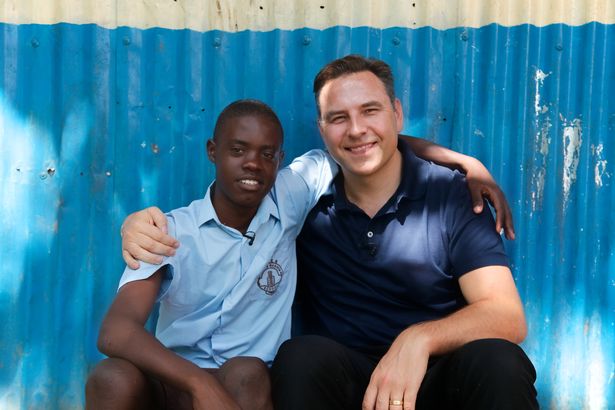
4 David Walliams Campaigns For Homeless Children In Kenya | Good Morning Britain
26 jan. 2015
3 David Walliams Visits Kenya | Sport Relief 2012
23 mrt. 2012
5 Hungry For Education; Street Children of Mekelle, Ethiopia
27 jun. 2013
6 Ethiopia’s Street Children
23 jan. 2008
7 – 15m people in Ethiopia will need food aid by 2016 – BBC News
10 nov. 2015
8 Why Are People Starving In Booming Ethiopia?
25 mei 2016
In the 80s the West was shocked by images of Ethiopias starving children and aid poured in from across the world. Now Ethiopias economy is booming. But once again babies are dying of malnutrition. What went wrong?
In Ethiopias capital Addis Abbaba the signs of new wealth are everywhere. Glass sky-rise blocks dwarf traditional stone settlements, and with daybreak hundreds of builders arrive at the citys construction sites. But on the outskirts is a very different scene. A long queue is forming here. Word has spread that cheap, government-subsidised food will be sold here. We ask one man if he has trouble feeding himself. Yes, he says, because of the Food Shortage. Just very recently we hit the worst, local woman Valerie Browning tells us. But the Developed World, the Ethiopian government and even many aid agencies want Ethiopia to be a success story. That means the real story often goes untold. At the breadline government security arrives and forces us to leave. This happens every day to news crews in Ethiopia. The government dont want to say that there is another side of the story, explains Former Ethiopian MP Gebru Asrat. The majority of the population do live in dire poverty. And in Ethiopia millions are getting poorer every year.
ABC Australia – Ref. 4253
Journeyman Pictures is your independent source for the world’s most powerful films, exploring the burning issues of today. We represent stories from the world’s top producers, with brand new content coming in all the time. On our channel you’ll find outstanding and controversial journalism covering any global subject you can imagine wanting to know about.
9 The Tragic Cost of Progress in Ethiopia
28 okt. 2013
The truth behind Ethiopia’s economic miracle
Ethiopia’s huge agricultural output has brought about an economic miracle for the nation. But inhabitants are being pushed out of their native land by foreign investors and have no share in the profits.
“When investors showed up we were told to pack up our things and go to the villages”, says Moot. Like thousands of other farmers he’s been relocated to an artificial village to make space for new foreign agricultural investments. The promise of social services, including schools and clinics, has not been fulfilled and fear of arrest paralyses the farmers. Government spokesmen defend the policy, arguing that “our population is spread all across the territory. We can’t give them care until they are grouped together”. But with Africa’s most fertile land being rented well below international market price and little need for labour in the highly industrialised farmlands, traditional farmers are struggling for survival.
Produced by Wild Angle Productions. Ref – 5962
Journeyman Pictures is your independent source for the world’s most powerful films, exploring the burning issues of today. We represent stories from the world’s top producers, with brand new content coming in all the time. On our channel you’ll find outstanding and controversial journalism covering any global subject you can imagine wanting to know about.
10 The dark side of agriculture in Ethiopia (1/2) | DW Documentary (Farming documentary)
5 jan. 2019
Across the globe, global commercial demand for arable land is on the rise. One of the most profitable new agricultural hotspots is Ethiopia. [Online until: February 4, 2019]
Part 2: https://youtu.be/Igk5NHH-qJ0
Farmland – the new green gold. In the hopes of huge export revenues, the Ethiopian government is leasing millions of hectares of land to foreign investors. But there’s a dark side to this dream of prosperity.
The results are massive forced evictions, the destruction of smallholdings, state repression, and a vicious spiral of violence in light of environmental devastation. Global institutions like the EU, World Bank and DFID are contributing to this disaster with billions of dollars in development money every year. Whoever gets in their way is met with severe consequences. The young Ethiopian environmental activist Argaw learned that the hard way when he tried to raise awareness for his country’s plight.
Are transnational land investments bolstering the economy or selling out the country? While some hope for financial gains and development, others are losing their very livelihood. In pursuit of the story, we meet investors, bureaucrats, persecuted journalists, struggling environmentalists and farmers who have been evicted from their land. Swedish director Joakim Demmer’s shocking real-life thriller ‘Dead Donkeys Fear No Hyenas’ starts in apparently remote corners of Ethiopia and leads through global financial centers, right to our dining tables.
_______
DW Documentary gives you knowledge beyond the headlines. Watch high-class documentaries from German broadcasters and international production companies. Meet intriguing people, travel to distant lands, get a look behind the complexities of daily life and build a deeper understanding of current affairs and global events. Subscribe and explore the world around you with DW Documentary.
11 The dark side of agriculture in Ethiopia (2/2) | DW Documentary (Farming documentary)
5 jan. 2019
Foreign business investors are looking to buy farmland in Africa. One of the most profitable new agricultural hotspots is Ethiopia.
Farmland – the new green gold. In the hopes of huge export revenues, the Ethiopian government is leasing millions of hectares of land to foreign investors. But there’s a dark side to this dream of prosperity.
The results are massive forced evictions, the destruction of smallholdings, state repression, and a vicious spiral of violence in light of environmental devastation. Global institutions like the EU, World Bank and DFID are contributing to this disaster with billions of dollars in development money every year. Whoever gets in their way is met with severe consequences. The young Ethiopian environmental activist Argaw learned that the hard way when he tried to raise awareness for his country’s plight.
Are transnational land investments bolstering the economy or selling out the country? While some hope for financial gains and development, others are losing their very livelihood. In pursuit of the story, we meet investors, bureaucrats, persecuted journalists, struggling environmentalists and farmers who have been evicted from their land. Swedish director Joakim Demmer’s shocking real-life thriller starts in apparently remote corners of Ethiopia and leads through global financial centers, right to our dining tables.
_______
DW Documentary gives you knowledge beyond the headlines. Watch high-class documentaries from German broadcasters and international production companies. Meet intriguing people, travel to distant lands, get a look behind the complexities of daily life and build a deeper understanding of current affairs and global events. Subscribe and explore the world around you with DW Documentary.
12 Ethiopia Drought: Improving Livelihoods in Drought-Stricken Ethiopia | Concern Worldwide
26 apr. 2016
00:03 Drought in Ethiopia
00:20 What impact has drought had on Ethiopia?
00:56 How is Concern Worldwide helping?
13 Devastating Drought in Ethiopia
24 aug. 2016
14 Imelda & Ferdinand: Exile in Hawaii Documentary
5 nov. 2019
More than 30 years ago, Ferdinand and Imelda Marcos were ousted from power in the Philippines and landed in Hawaii’s lap.
Their exile in the islands became a years-long, global spectacle.
And it divided the community as the Marcos family brought their lavish and loud lifestyle to Oahu.
In this special digital documentary, HNN explores how one the largest political scandals in modern history landed in the Aloha State, and why ― decades later ― the controversy surrounding the Marcos family is far from resolved.
15 Dog Chow Sample Food
3 mei 2011
A woman at a food sampling stand asks shoppers to keep an eye on it for a moment, neglecting to tell them it’s a dog food taste test. Then two guys show up and start eating the food.
JFL British Edition is a presentation of JustForLaughsTV, the official Just For Laughs Gags YouTube channel. Home of the funniest, greatest, most amazing, most hilarious, win filled, comedy galore, hidden camera pranks in the world!
agodelianshock
2 dagen geleden (bewerkt)